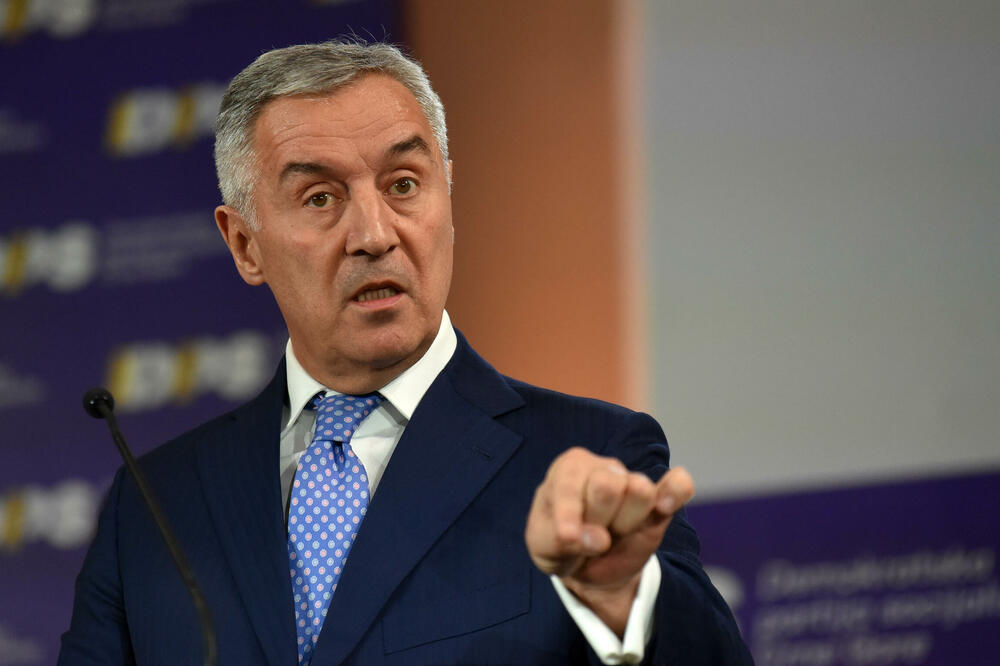Sep Blatter see corruption in modern football? Or, some rock star who, when they stop listening to him, begins to see the despised "commercial" everywhere... Doesn't it sound like - Djukanovic see the dictatorship in Montenegro. And, again, if anyone knows, he knows...
Whenever Đukanović is in political trouble, he sees - dictatorship. Do you remember his original contribution to modern political theory - "parliamentary dictatorship", at the time when he rank most annoyed.
It has long been clear in literature: point of view (point of view) is the key question, it decisively shapes the text.
Here we see how it works in politics. Limited by his point of view, and unaware of its importance, Đukanović does not remember the dictatorship during his own rule, but suddenly, after the loss of power, he sees it clearly all around.
By the way, and it is not without significance, when you have the same process in matters of ethics, you get the so-called tribalistic (anti)morality - it's good when we introduce a dictatorship, and it's bad when others do it...
And that concern for, mind you, "critical thought". In the past, he used terms such as monsters, media mafia, unrealized, shameful, jackals, called for "extermination" for his critics, and now, "critical thought". And that, one would say with a lot of understanding, one can even sense a certain concern.
As if to say that even that "criticism" was missing, until DPS pushed the matter forward. Here, as well as the church, perhaps Đukanović believes that DPS should also establish "critical thought" in Montenegro. His mind wouldn't mind, it seems.
And, as far as I understand, the bearers of that "critical thought" he is talking about (in addition to all those who criticize without his blessing) are also his media bullies of yesterday, fraudsters, (judicially) proven liars... There are many public critics of everything that today is happening in Montenegro, but I don't believe that Đukanović is thinking of them. He is referring to those who are clear (and close) to his consciousness - activists who pretend to be free-thinking people. It's not a new phenomenon - it's been here with every government since Petrović, a similar camarilla was going.
The project "Word, image, enemy", for example, remains as a kind of monument to Đukanović's political subtlety and democracy. You remember - the texts placed against the wall. He is a man of measure: the authors were not brought before the wall. (Maybe he regrets it now.)
Of course, it is easiest to laugh and be appalled at the blaring cynicism that emerges from such a statement, but what we see around before the dictatorship seems to me like the ecstasy of ignorance and dilettantism. The elements of dictatorship in his time were constitutive parts of the system, the pillars on which his power rested. Dilettantism and ignorance are hideous and tiring, but easier to overcome than the autocratic impulses at the core of the system.
And of course, Đukanović has the right to talk about the dictatorship, it's just unlikely that anyone will believe him in such assessments. As much as Sepp Blatter... Simply, he is too "damaged" by the matter he is talking about.
In the end, he is the main architect of the basic strategic mistake of the political elite that was born in the days and spirit of the referendum - his choice is closure instead of opening and a dictatorship and a party state instead of a free society, which are processes that would have significantly reshaped Montenegro even to this day. . Instead of wrestling with serious problems, he chose to deal with those beyond his control. The issue of control, that must have something to do with tendencies towards dictatorship?
He chose to surround himself with kerbers and hunt down his enemies. In that hunt, he and his men reached some of the peaks of inhumanity in Montenegrin public life, thereby "setting the tone" for everything that followed.
In short: it is difficult to imagine a more wrong speaker for the topics of dictatorship and "critical thought".
And what do you think - does anyone believe him? Start from yourself...
Bonus video:





